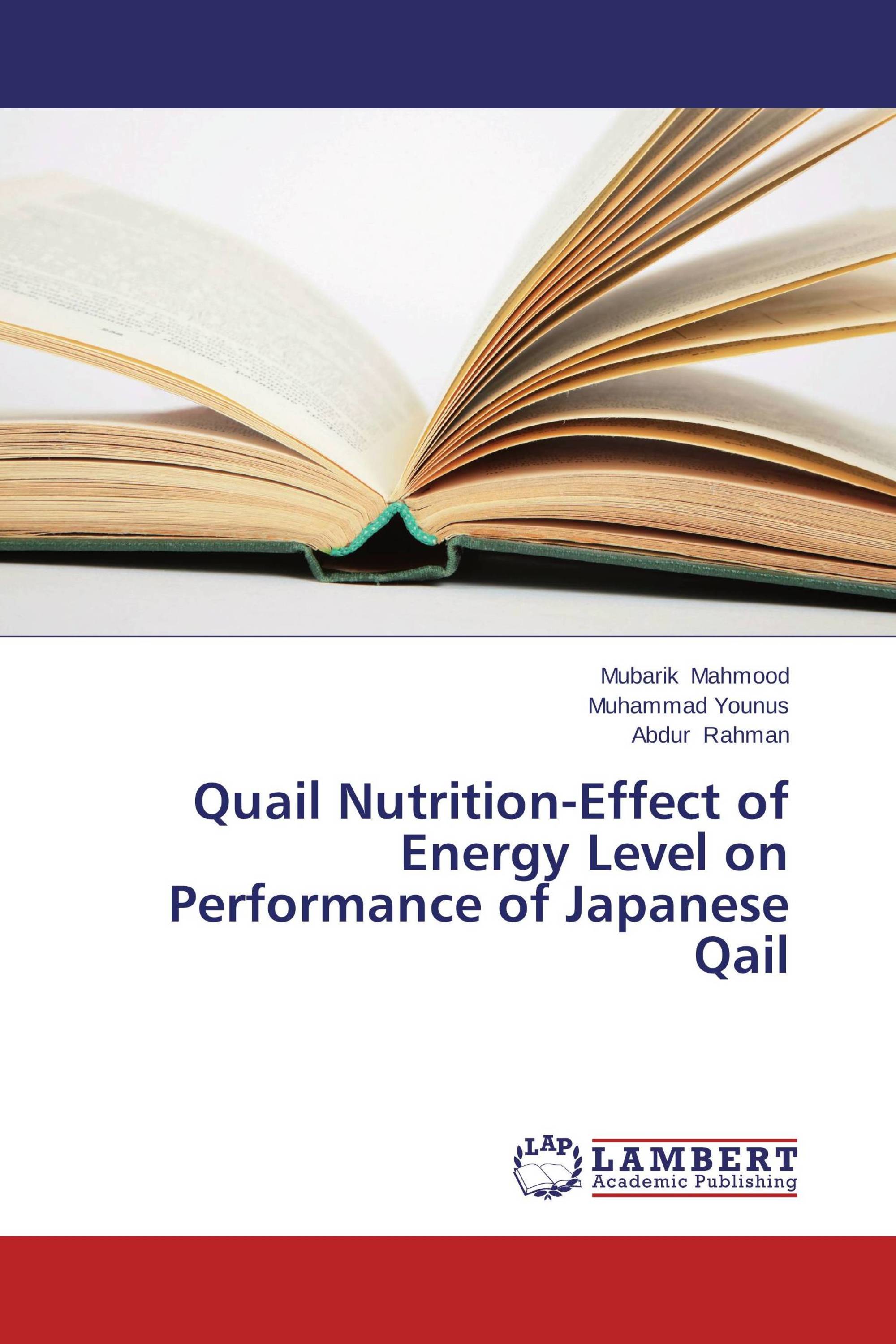Quail Nutrition-Effect of Energy Level on Performance of Japanese Qail
LAP Lambert Academic Publishing ( 2014-02-16 )
€ 39,90
Different energy levels were used in quail feed to examine its carcass quality, production and growth performance. Three different energy levels of 2700 kcal/kg, 2900 kcal/kg (which was control) and 3100 kcal/kg of feed were offered to 600 day old quail chicks for 28 days. There were four replicates under each of the three groups; each replicate having 50 chicks. Weekly feed consumption, weight gain and FCR were recorded. The results of the experiment revealed that feed consumption and body weight gain were significantly (p<0.05) higher in group containing 3100 kcal/kg of energy following the control group having 2900 kcal/kg energy while group possessing 2700 kcal/kg energy was at the last. FCR was best seen in high energy group following the lowest energy diet while the control group was intermediate. The higher energy group showed maximum value for dressing percentage and liver weights followed by lower energy diet and lowest energy diet. The characteristic breast meat percentage was, however, showing lowest value for highest energy diet. Economics of the experiment revealed a considerably low feed cost per kg live weight of the group C having high energy as compared to others.
Book Details: |
|
|
ISBN-13: |
978-3-8484-2451-1 |
|
ISBN-10: |
3848424517 |
|
EAN: |
9783848424511 |
|
Book language: |
English |
|
By (author) : |
Mubarik Mahmood |
|
Number of pages: |
68 |
|
Published on: |
2014-02-16 |
|
Category: |
Veterinary medicine |




